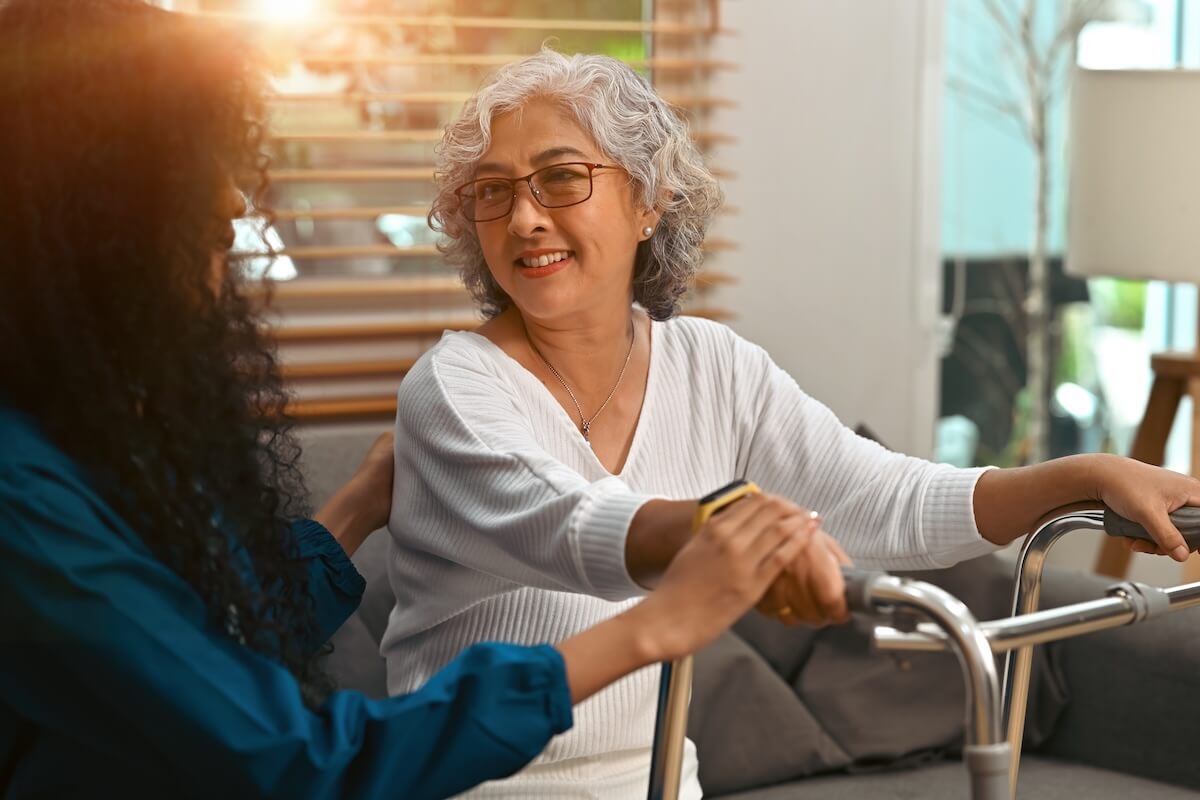When a parent or loved one completes post-acute care rehabilitation, it’s often a moment of relief and hope. You’ve seen them put in the work—rebuilding strength, relearning tasks, and making progress one step at a time—but leaving a structured care environment and returning home can also lead to new questions. What kind of help will they need now? How can you support their continued recovery while helping them feel confident and independent?
This stage of the journey can feel overwhelming, but you don’t have to face it alone. With the right plan, resources, and support, your parent or loved one can continue moving forward and regain a strong sense of stability and purpose.
Understanding the Transition from Rehabilitation to Home Life
The move from a post-acute care setting back to everyday life marks a big adjustment. In rehabilitation, daily routines are designed around recovery. There’s a team of physical therapists, nurses, and aides available at all times. At home, those systems aren’t built-in, and that shift can be challenging.
Your parent might be facing:
- Limited mobility or endurance compared to pre-hospital life
- Increased risk of falls or injury without on-site supervision
- Anxiety or depression, especially if the recovery process feels slower or isolating
- Medication management, dietary restrictions, or follow-up therapy appointments
Helping your parent adjust means preparing for both the practical and emotional sides of recovery.
If you’re unsure where to begin, our team at CareOne is here to help you build a personalized plan that carries the momentum of post-acute care rehabilitation into daily life with confidence and clarity.
Communication Is Key: Stay Connected With Providers
Ongoing communication with your parent’s care team is essential. Whether they received post-acute care rehabilitation at a hospital, skilled nursing facility, or CareOne community, it’s important to understand:
- The discharge plan and timeline
- Any recommended home modifications or adaptive tools
- Prescribed exercises or therapy regimens to continue
- Upcoming follow-up appointments with specialists or primary care
Keep copies of medical records and therapy notes, and don’t hesitate to ask questions. Being an informed advocate helps your parent stay on track and reduces the risk of setbacks.
Creating a Supportive Environment at Home
A safe, accessible, and encouraging home environment makes a major difference in continued recovery. Consider:
- Modifying physical spaces: Add grab bars, non-slip mats, or raised toilet seats
- Keeping essentials accessible: Store frequently used items at waist height
- Using assistive technology: Alarms, pill organizers, and remote monitoring can boost independence
- Helping build routines: Consistent times for meals, rest, movement, and medication help reestablish structure
Encourage your parent to participate in decisions and keep communication open about what feels challenging or successful.
Supporting Emotional Recovery
The emotional side of recovery is just as important as the physical one. After weeks of support and attention in rehab, it’s common for individuals to feel alone or uncertain when routines shift.
You can help by:
- Celebrating milestones—no matter how small
- Encouraging social engagement, such as calling a friend or attending local events
- Offering space for honest conversations about their feelings and progress
- Practicing patience if they express fear, frustration, or low motivation
Remind your parent that healing takes time and that they’ve already come so far.
What to Do When More Support Is Needed
Sometimes, home life isn’t the best fit for continued recovery, and that’s okay. If your parent needs more support than you can provide on your own, post-acute care rehabilitation services may continue through an assisted living or skilled nursing setting.
CareOne communities provide:
- Ongoing physical, occupational, and speech therapy
- Skilled nursing care for complex medical needs
- Social programs and wellness services that support emotional recovery
- Safe environments designed for mobility, comfort, and healing
However, we also offer CareOne at Home services, designed to provide seamless, compassionate care that supports your recovery every step of the way. With a range of services, including assistance with activities of daily living, medication reminders, meal preparation, and light housekeeping, our goal is to help you regain independence and confidence in the comfort of your own home.
We work closely with families to determine the best next step—whether that’s returning home with support or transitioning into one of our care communities.
Partnering With CareOne for What Comes Next
At CareOne, we know that recovery doesn’t stop when formal rehabilitation ends. That’s why we offer a continuum of care designed to meet your parent’s needs today—and anticipate their needs tomorrow.
Our experienced teams stay connected throughout the post-acute care journey, offering the tools, education, and encouragement that make a difference. Whether your parent is recovering from surgery, illness, or injury, we’re here to help your family plan confidently and move forward with peace of mind.
Let CareOne be your partner in life after post-acute care rehabilitation—because continued progress starts with consistent, compassionate support. Reach out to a member of our team today.
